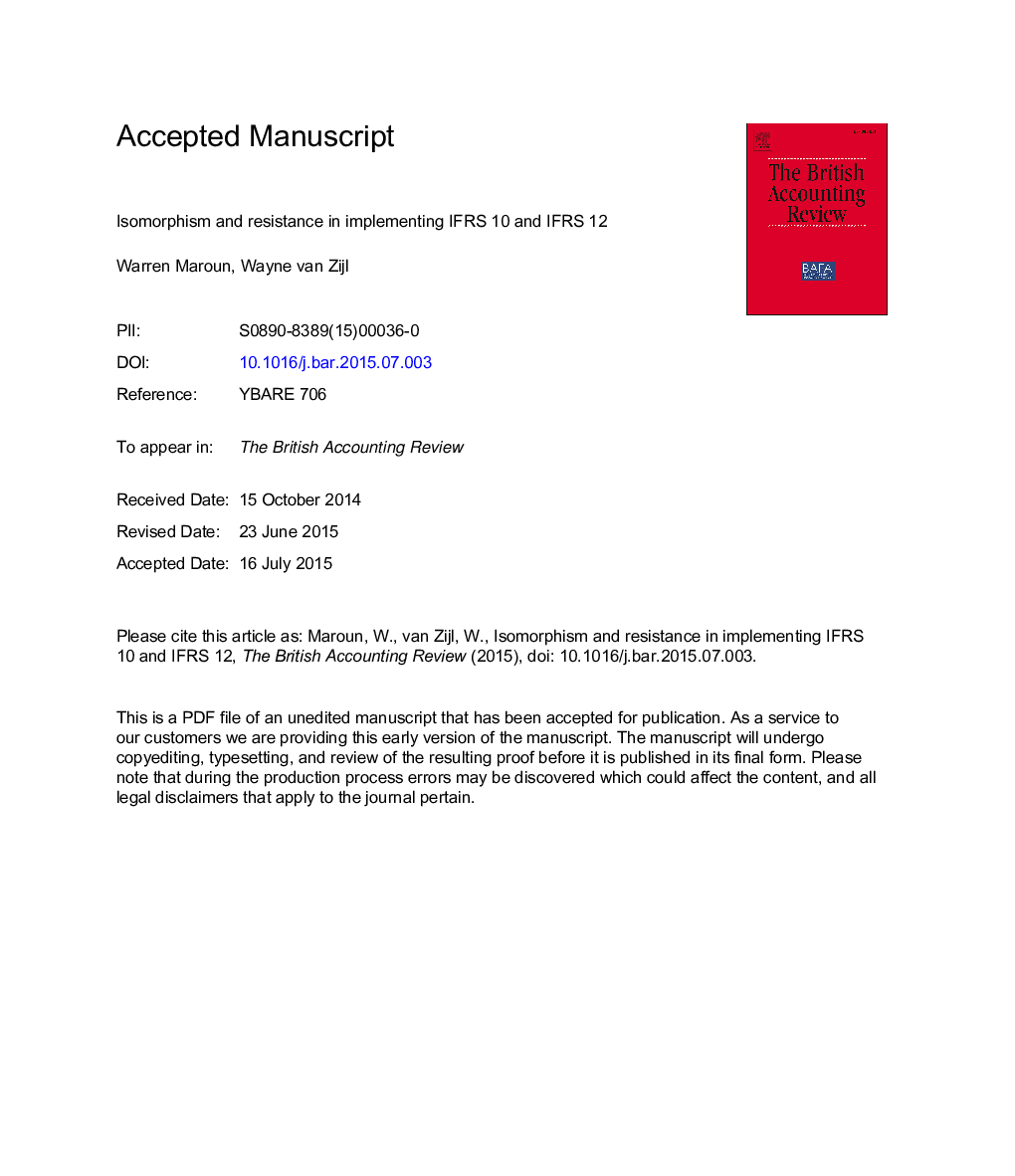| Article ID | Journal | Published Year | Pages | File Type |
|---|---|---|---|---|
| 10489382 | The British Accounting Review | 2016 | 44 Pages |
Abstract
The recently released International Financial Reporting Standards (IFRS) on consolidation accounting are used as a case study for demonstrating how coercive, normative and mimetic isomorphism are at work, driving a propensity to comply with the IFRS. At the same time the research explores how a 'logic of resistance' by preparers of financial statements influences how these standards are applied. The study finds that, far from being a neutral technical process, the functioning of accounting systems itself produces a dynamic for change and reform. Interviews describe a mutually reinforcing relationship between the introduction of new accounting requirements and the application of these requirements in complex social settings characterised by a 'logic of resistance'. With no practical means of resolving this, the conflict between the International Accounting Standards Board (purportedly trying to improve financial statements) and users of the IFRS (in some instances seeking to apply the accounting standards to their own ends) is likely to be a defining feature of the next round of changes to the IFRS dealing with consolidation and the principle of control.
Related Topics
Social Sciences and Humanities
Business, Management and Accounting
Accounting
Authors
Warren Maroun, Wayne van Zijl,
